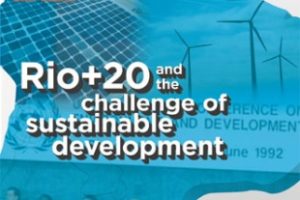Media Release, 8 December 2013
IBON International Director Antonio Tujan Jr. today condemned the new trade deal finalized at the recently concluded 9th World Trade Organization ministerial in Bali, Indonesia, as a license for a renewed neoliberal offensive against developing countries.
“The global powers are congratulating themselves in celebration. They say WTO is back in business after 12 years of failed ministerials. But this so-called ‘breakthrough in Bali’ heralds more pain for the people and the planet,” the head of IBON International said.
Tujan, who attended the talks together with other IBON members as part of a sizeable civil society delegation, said the Bali deal contained at least three highly insupportable provisions that passed despite stubborn resistance from developing countries and civil society.
“First, the Bali agriculture package sells out the right of people and of whole countries to food because, among other things, it imposes constraints on government grain subsidies that developing countries must have to ensure food stockholding programs,” Tujan said.
“This is totally against the principle of food sovereignty, which the world’s farmers and food rights advocates have long been fighting for,” he added.
The second contested item, Tujan said, was the package of special rules long demanded by least-developed countries (LDCs) that might have softened the worst WTO impacts on their disadvantaged trade position. “The LDC package mostly contains only empty promises,” he said.
Third, the over-hyped deal on Trade Facilitation will simply mean that developing countries, whose fragile industries and agriculture are already reeling from the impacts of unequal trade, will further be weakened by the accelerated deluge of goods and services from developed countries, he explained.
Tujan also called the new WTO agreement a “midnight deal,” for having been finalized in two consecutive overnight meetings among delegations and heads of delegations on Friday and Saturday, amidst what civil society representatives protested as undemocratic ways of forcing consensus hiding behind inclusiveness and multilateralism.
At the start of the Bali ministerial, some member-countries and civil society groups had pinned their hopes on a Group of 33 (G33) set of counter-proposals to give teeth to their efforts to turn the negotiations in favor of poor countries and affected sectors such as farmers.
India at first declared that its food security was non-negotiable in its objections to an agriculture provision that would conflict with its new food security bill. Cuba meanwhile insisted that a reference to the decades-long US trade embargo be retained. Together with Bolivia, Nicaragua and Venezuela, it also questioned serious imbalances in the Bali package. At the last minute, India and the Latin American bloc softened their positions.
Tujan noted that the deadlocks were resolved not through developing countries gaining substantial compromises from developed countries but by merely tweaking the language of the final declaration. “It would be naive for the world’s people to rely on the heroics of a handful of government ministers within the halls of a WTO summit,” he added.
“It is also naive to think that Bali unlocks the Doha Development Agenda for developing countries to revive their old demands, as pro-WTO groups hope to do. The WTO giants will just keep on using the DDA carrot to ram through their neoliberal agenda and further put the developing countries in a beggar’s position,” Tujan said.
The Bali package may salvage the WTO reputation for now, and open the door for a more odious post-Bali agenda, he said. “But in the long run, this will only prove what IBON and other anti-WTO and anti-neoliberal people’s movements and activists have been saying: that we cannot hope to rely on the fossilized processes of this unequal, unjust, and undemocratic trade system to reform itself.”
Tujan reiterated that what is really needed is to defeat and dismantle the WTO by relying on the broad people’s movements and civil society. He congratulated the People’s Global Camp, a four-day gathering also in Bali of Indonesian, other Asian, and international groups that served to counter the official WTO process. The PGC was organized by the Indonesian People’s Alliance.
Tujan said the IBON International has joined more than 30 other civil society organizations critical of the WTO in a continuing campaign to junk the WTO and “abandon neoliberal globalization as a framework for development and international relations.”
They are pushing instead for an Alternative Framework for International Trade and Cooperation for Development Justice. Tujan said they are calling for an alternative Social Summit on Trade and Development where all stakeholders can gather to discuss and elaborate such an alternative multilateral agenda for trade and development based on the basic principles of solidarity, equality, cooperation and respect for human rights. ###
_______________________________________________________________________________________________________
Email: media@iboninternational.org
Website: https://iboninternational.org
Landline: +63 02 9277062
Mobile: +63 0920 9058092
NOTE TO EDITORS:
IBON International is an international service institution encompassing capacity development functions directed towards social movements and civil society constituencies in all regions of the world especially in the global South, in the context of a fundamental advocacy of social justice and social transformation.
Antonio Tujan Jr. is Director of IBON International and co-chair of the People’s Coalition on Food Sovereignty, both of which are involved in civil society initiatives at the 9th World Trade Organization ministerial conference currently being held in Bali, Indonesia. Tujan is also a noted writer and editor of books on development and social transformation. He can be reached at tony.tujan@iboninternational.org.


